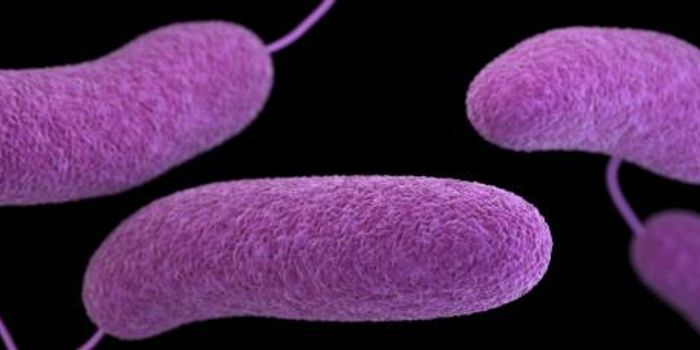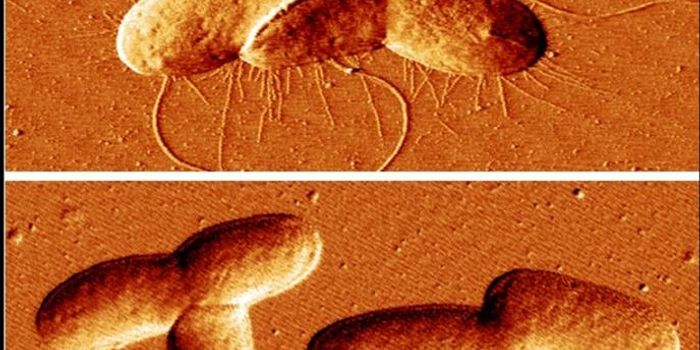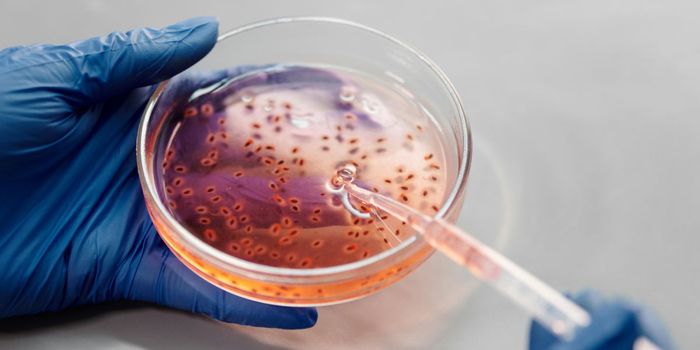Scientists Trace the Evolutionary Path of a Hospital Superbug
For centuries we've been locked in a battle with pathogenic microbes, and while we've long had the upper hand because of antibiotics, bacteria are starting to evade the ones we use the most. That's happening for many reasons, in part because of the overuse and misuse of antibiotics, and the pressure that can exert on microbes to evolve. Research has now suggested, however, that even before the widespread use of antibiotics, selection pressure influenced the development of antibiotic-resistant bacteria.
In this work, which was reported in Nature Communications, scientists used cutting-edge analytical and sequencing tools to follow the evolution of a bacterium called Enterococcus faecalis. They studied about 2,000 samples of E. faecalis collected from healthy and ill humans and animals, from 1936 until now.
The work created a timeline describing the development of different strains of this microbe, including those that are now antibiotic-resistant. The team showed that antibiotic-resistant strains emerged earlier than we knew, and prior to the widespread use of antibiotics. Antibiotic use alone, therefore, is unlikely to have caused antibiotic-resistance, noted the study authors.
"This is the first time we have been able to map out the full evolution of E. faecalis from samples up to 85 years old, which enables us to see the detailed effect of human lifestyles, agriculture, and medicines on the development of different bacterial strains," noted co-lead study author Professor Jukka Corander, an Associate Faculty member at the Wellcome Sanger Institute. "Having the full timeline of evolutionary changes would not have been possible without analytical and sequencing techniques that can be found at the Sanger Institute."
This bacterium is often harmless and lives in the intestine without causing illness. But if it ends up in a person's bloodstream it can cause serious and sometimes antibiotic-resistant infections. Sometimes these infections are picked up in hospitals.
Selection pressures, like agricultural chemicals, disinfectants, or medications, can cause E. faecalis to evolve, and different strains of this microbe are found in many places. In hospitals, E. faecalis is more likely to be resistant to antibiotics, possibly due to the environment, in which lots of cleaning products are used, or because many people carry these microbes with them into hospitals, and some become patients that receive antibiotics.
"Currently, when patients are admitted to hospital, they are swabbed for some antibiotic-resistant bacteria and fungi and are isolated to ensure that infection rates are kept as low as possible," said co-lead study author Dr. Anna Pöntinen, a post-doctoral fellow at the University of Oslo. "Thanks to this study, it is possible to scrutinize the diversity of E. faecalis and identify those that are more prone to spread within hospitals and thus could cause harm in immunocompromised people. We believe that it could be beneficial to also screen for E. faecalis on admission to hospitals."
The study determined that early medical practices like arsenic and mercury use and agricultural practices also had an influence on the strains we now deal with. Antibiotic-resistant strains of E. Faecalis were also found in birds.
"This research has discovered that these hospital-associated strains of antibiotic-resistant bacteria are much older than we previously thought, and has highlighted their incredible metabolic flexibility combined with numerous mechanisms enhancing their survival under harsh conditions that has allowed them to spread widely across the globe," said study co-author Julian Parkhill, Professor in the Department of Veterinary Medicine at the University of Cambridge.
Sources: AAAS/Eurekalert! via Wellcome Trust Sanger Institute, Nature Communications









